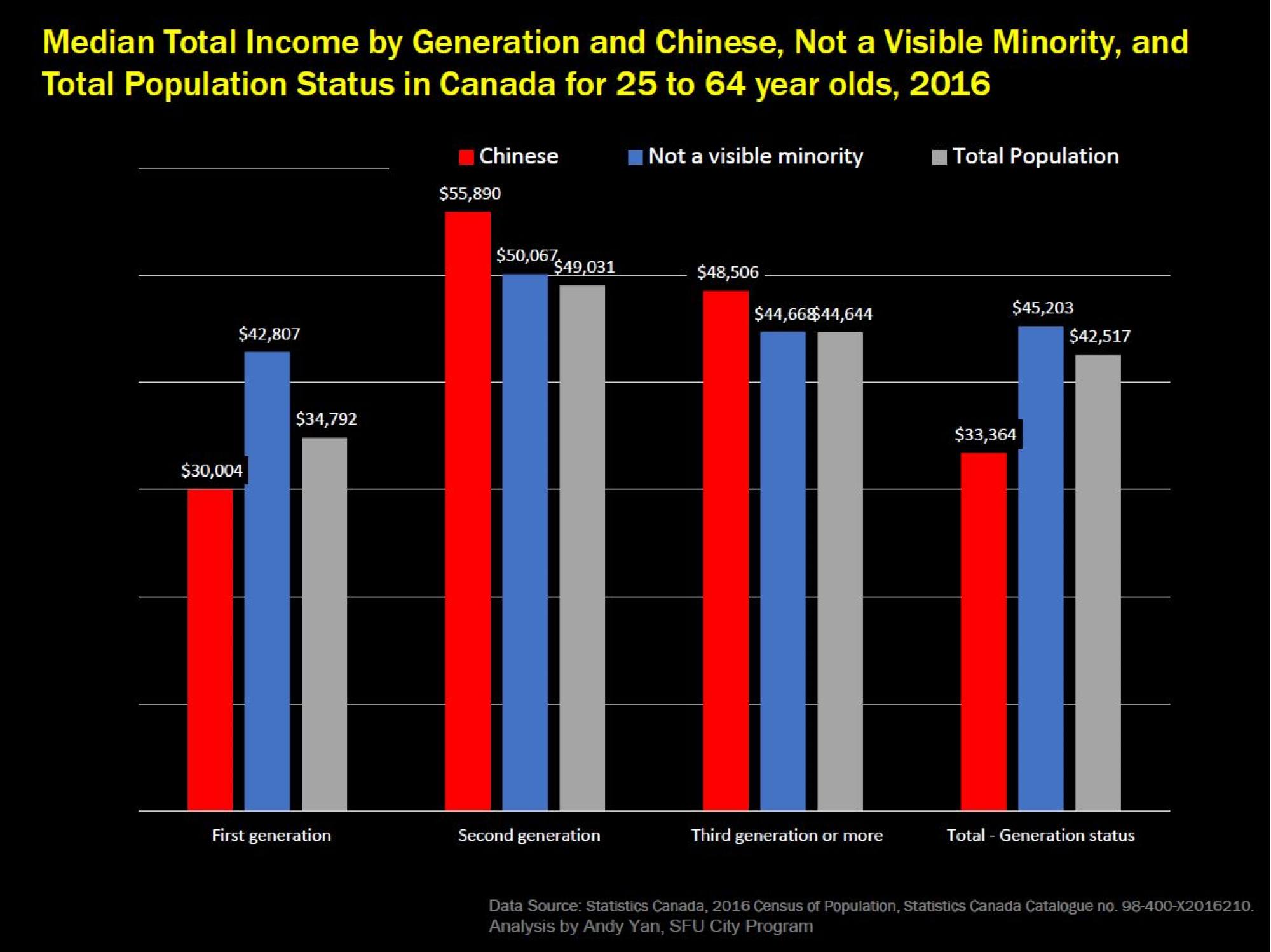
Chinese-Canadians twice as likely to own and live in unaffordable homes, new data reveals
- Housing expert Andy Yan said pre-immigration wealth, other foreign capital, and a cultural emphasis on ownership may explain the cost-income disparity
- Chinese-Canadians are meanwhile about half as likely to live in rented accommodation, according to the government findings
Ethnic Chinese are twice as likely as other Canadians to own and live in housing that is unaffordable compared to their incomes, and only about half as likely to live in rented accommodation, according to a newly released government findings.
The data reveals a big gap between many Chinese-Canadians’ local earnings and their housing costs, that urban planning academic Andy Yan said could be explained by pre-immigration wealth and other foreign capital, mixed with local lending.
“But there are also the considerable sacrifices that, in spite of working poorly paid local jobs compared to their human capital and education, they are able to achieve home ownership via multigenerational households and overcrowding,” said Yan, director of the city programme at Simon Fraser University in Vancouver.
There was also a “cultural parameter” that emphasised ownership – even if it put finances under stress, added Yan. “There’s a Cantonese saying, that it’s better to eat less than lose your home,” he said.

The new data was released last week by Statistics Canada, based on its 2018 Canadian Housing Survey, a study of about 125,000 households nationwide.
Statistics Canada said that 85 per cent of Chinese-Canadians lived in a home owned by a household member.
Of these, 32 per cent were in housing that Statistics Canada deemed “unaffordable”; that is, housing costs exceeded 30 per cent of total household income.
Among all Canadians, 15 per cent of owner-occupied households were in such unaffordable accommodation.
Canada reveals secret study linking home prices to millionaire migration
Almost half (48 per cent) of all Chinese-Canadian households with a mortgage were in unaffordable housing, compared to 21 per cent of all such Canadian households, while the median monthly shelter cost for Chinese-Canadian owner-occupied households was 35 per cent higher than for all such Canadian households, C$1,540 (US$1,205) vs C$1,140 (US$892).
Yan said Chinese-Canadian housing choices were “dominated by the immigration story”, since 73 per cent of Chinese-Canadians were immigrants, he said, citing separate data from the 2016 Census.
Home ownership was “why some people came to Canada” said Yan, pointing to data in the Statistics Canada release that showed only 15 per cent of Chinese-Canadian households rented, compared to 27 per cent of all Canadian households.

“They didn’t come to Canada to be renters. They wanted to be owners,” he said.
“If people are entering the home ownership model as first-generation immigrants, they’re not coming in with just local incomes. It looks like they need to have some level of pre-existing wealth … particularly in Vancouver,” said Yan.
Chinese-Canadians make up 4.6 per cent of Canada’s population of 36 million, according to Statistics Canada. But they are heavily concentrated in Vancouver and Toronto, where they make up about 20 per cent and 11 per cent of the populations respectively, census data shows.
Vancouver is one of the world’s most unaffordable cities; the only city more unaffordable on the Demographia think tank’s annual rankings of hundreds of cities in eight markets around the world is Hong Kong.
According to the Real Estate Board of Greater Vancouver, the so-called benchmark price for all residential homes in Metro Vancouver is C$1,199,400 (US$938,590), while the average price of a detached house hit C$2.05 million (US$1.6 million) last month.
Prices in Toronto, Canada’s biggest city, are not far behind, with a benchmark price of C$1,128,600 (US$883,186), according to the Toronto Regional Real Estate Board.

Yan said the high level of apparent housing unaffordability among Chinese-Canadians could be explained by a range of factors.
“There’s a huge flow of foreign wealth, magnified by our mortgage system, with a cultural parameter about the sense of security [provided by] housing,” said Yan.
Mixed in with households whose members were not declaring income earned abroad, and “astronaut households” that relied on financial contributions from a non-Canadian-resident family member, were genuinely low-income households that were under housing-related financial stress.
There was also a relatively high number of multi-generational Chinese households, said Yan. The newly released data showed 12 per cent of Chinese-Canadian households were what Statistics Canada called a “multiple census family household”, involving members beyond parents or partners and their children. That was more than double the all-Canadian rate of 5 per cent.
What will China’s hockey team face at Beijing 2022?
Yan said that while the Statistics Canada data did not include a “smoking gun” about the role of foreign earnings and wealth on Chinese-Canadian home buying, the disparity between costs and income suggested that “you have to be making money abroad, or bring savings from abroad, to somehow maintain your lifestyle in Canada”.
But no single explanation applied.
He said the 2016 Census showed that first-generation Chinese in Canada aged 25-64 had median incomes of just C$30,004 (US$23,500), despite high levels of education.
That was far below the all-Canadian figure of C$42,517 (US$33,301). But among second-generation Chinese-Canadians, earnings soared to C$55,890 (US$43,788).
“So we have this story about income polarity among Chinese-Canadians, and the struggle of new immigrants to set roots in Canada, and the importance of pre-existing wealth – not just to housing slash real-estate, but to just living in Canada,” said Yan.

